Suffering from bipolar disorder can have a negative impact on all aspects of your life, but it doesn’t have to. Let Blue Ridge Mountain Recovery Center teach you the skills you need to manage your symptoms and thrive in your future.
Treatment for Bipolar Disorder
Learn More About the Treatment We offer for Bipolar Disorder
Chemical dependency can have a significantly negative effect on a person’s health and wellbeing. When a person’s struggles with addiction are accompanied by co-occurring bipolar disorder, the impact can be exponentially more severe.
Bipolar disorder is characterized by a variety of distressing symptoms, including extreme fluctuations in mood. If you or a loved one is addicted to alcohol or another drug, and is also dealing with co-occurring bipolar disorder, you may find it virtually impossible to maintain healthy relationships, attend work, get and keep a job, and otherwise participate in a productive and satisfying life.
The good news is that addiction and co-occurring bipolar disorder are treatable conditions. With proper professional care, you or your loved one can achieve long-term recovery from chemical dependency and can also learn to manage the symptoms of co-occurring bipolar disorder.
When you or your loved one chooses to heal at Blue Ridge Mountain Recovery Center, you will have the opportunity to work closely with compassionate professionals who are experienced at helping men and women whose lives have been disrupted by addiction and co-occurring bipolar disorder. At our substance abuse treatment center in Georgia, you will receive comprehensive support, personalized according to your specific needs, and delivered in an atmosphere of dignity and respect.
Blue Ridge Mountain Recovery Center can help you take important steps along your path of long-term recovery from addiction and co-occurring bipolar disorder.
Why Choose Us
Why You Should Consider Residential Treatment at Blue Ridge
Without effective rehab the symptoms associated with bipolar disorder will only cause greater suffering. Individuals with bipolar disorder may watch their life may begin to unravel leaving them unsure of where to turn next. If you have bipolar disorder you may realize that you have begun to have problems in your social relationships and that you are slowly shutting yourself off from the world. You may find yourself experiencing cognitive impairments and have fleeting thoughts of suicide. With proper support and care at a dedicated bipolar disorder treatment center, these symptoms can be properly managed.
At Blue Ridge in Georgia, we offer residential treatment that are effective at helping you learn to cope with their bipolar disorder and live a fulfilling life. A rehab center like ours is designed to eliminate outside stressors to allow you the time to heal and get your symptoms under control.
Our treatment center is located in the foothills of the Georgia Blue Ridge Mountains, a beautiful environment where you can feel safe as you begin your healing process. Our holistic rehab ensures that you will get the most comprehensive treatment available. Our empathetic and fully trained treatment team is ready to help you reclaim your life.
Program Philosophy
Program Philosophy and Benefits
The multidimensional residential treatment programs at Blue Ridge Mountain Recovery Center provide individualized treatment designed to meet each client’s needs. Additionally, we emphasize treating the whole person instead of just focusing on eliminating the presenting symptoms. There is so much more to you than the symptoms of bipolar disorder.
The staff at Blue Ridge will get to know you personally in order to create the best treatment plan possible. They will focus on your current strengths empowering you to take an active approach to your recovery. We will do everything in our power to help you, we know that ultimately you hold the key to your success.
Types of Therapy
Types of Therapy We Use to Treat Depression
Blue Ridge is one of the leading residential treatment centers in Georgia that offers a number of effective treatment models for the management of bipolar disorder. Through years of experience with treating individuals with this disorder we have found that the best treatment is a combination of medication management, traditional therapy, and experiential techniques.
Medication is used to help individuals who are diagnosed with bipolar disorder more adequately manage their symptoms. The types of medication will depend on the type of bipolar disorder and the severity of your symptoms. While medication is usually needed on a long-term basis, the dosage may be altered as you learn new coping skills that will aid in symptom management throughout . Medication management will be provided by your treatment team. You will work with them to determine which medications work best for you.
Individual therapy gives you the opportunity to work closely with a trained therapist to sort through concerns you have with your current condition. This a more intimate setting in which you will learn to cope with your symptoms, identify stressors, and discover how to deal with any other co-occurring mental illnesses.
Cognitive behavioral therapy (CBT) is commonly used at our treatment center during rehab to help you identify your destructive thinking patterns and the resulting negative behavior. By changing your thoughts to more constructive thoughts you can begin to change your behavior as well.
Reality-based therapy (RT) focuses upon your most current problems instead of looking back at past issues. Through this therapy you will learn problem-solving skills that will be practiced through different exercises such as role playing. These techniques will help you to deal with struggles related to your bipolar disorder.
Group therapy is a major component to the residential rehab offered here at Blue Ridge. We want you to connect with other individuals facing similar struggles so that you can learn from each other’s experiences. While you gain additional support you can work together to learn more effective coping strategies. We offer both process and psycho-educational groups that focus on a variety of topics depending on the session.
Finally another important portion of our treatment is family therapy. Family sessions will be used to help identify and work through existing family dynamics that may have exacerbated your disorder. We also hold a 2-day intensive family workshop here at our treatment center in Gerogia where your family members will learn about your bipolar disorder and how they can contribute to your recovery process.
We also provide additional non-traditional methods to assist with your recovery. These include:
- Recreational programming
- Guided meditation
- Spiritual therapy
- Art programming
- Nutritional counseling
- Role playing
- A.A. and N.A.
After Treatment
Continuing Care – What Comes Next?
Before you are discharged from our residential treatment you will work with your treatment team to establish an effective aftercare plan. Together you will determine which type of continuing care will be best for your current needs.
Whether you will be transferring to an intensive outpatient program such as Partial Hospital Program (PHP) or an Intensive Outpatient Program (IOP) or traditional outpatient therapy, we will help set everything up to make the transition as smooth as possible. All of these programs provide less structure than residential treatment, but still offer a variety of therapeutic services to help you continue to recover from bipolar disorder.
If you are returning home, we will help to connect you with a local outpatient provider in Georgia or elsewhere and set up an appointment time to ensure there are no lapses in your recovery. We want to make sure that you getting the continued support you need to be successful in your recovery.











